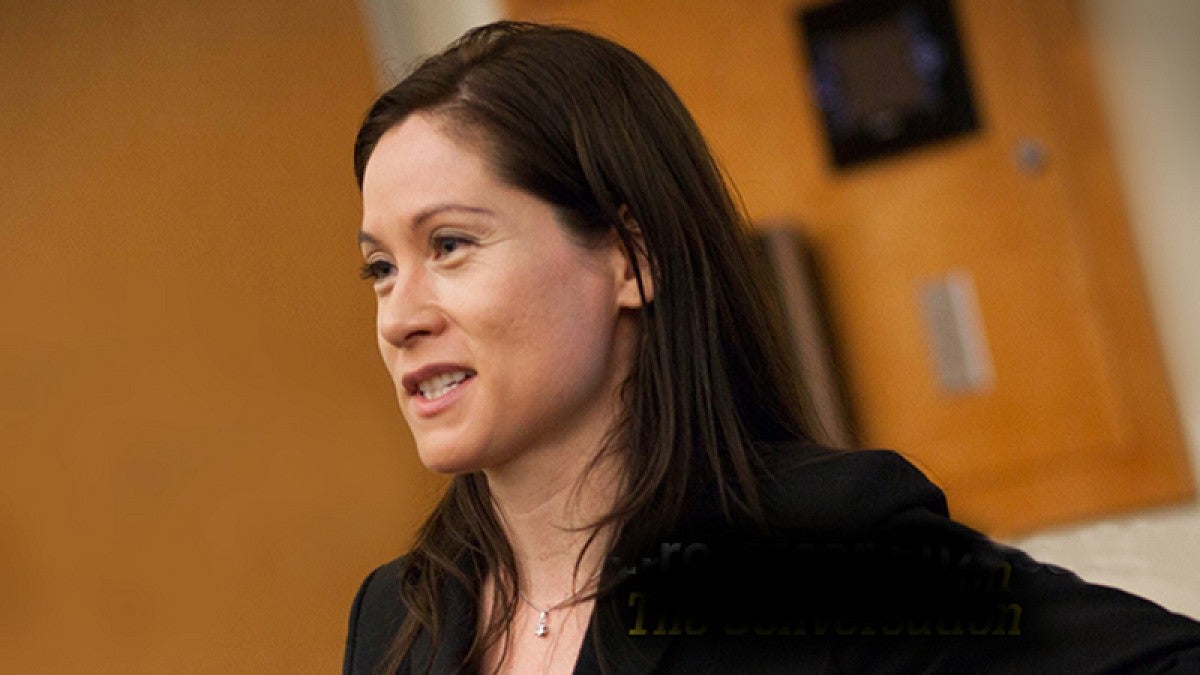Twenty seventeen shined a light on sexual harassment and how it can flourish in the workplace. Now, the focus is on how to address these societal issues.
“Part of the answer is just this straightforward: Stop workplace harassment and treat employees equally,” writes Elizabeth Tippett, UO associate law professor. “But when you zoom out further, the harassment crisis of 2017 reveals broader cracks in workplace regulation that have grown over time — similar to how the 2008 financial crisis resulted from long-festering economic problems and weaknesses in our legal system.”
Tippett wrote an article on the topic for The Conversation. It was republished by the San Francisco Chronicle, the Houston Chronicle and several other news sources. To prevent workplace sexual harassment, Tippett outlines root problems that need to be addressed through legal reforms.
Current employment laws leave some workers without legal recourse if they suffer harassment, she said. Domestic workers, such as housekeepers and nannies, are one such group. Also vulnerable are independent contractors, like Uber drivers and many food delivery cyclists, who are not protected by employment-related statutes.
Low-wage workers, because they are less profitable, often have trouble finding a lawyer to represent them. This issue could be addressed by imposing larger penalties for certain types of violations. These penalties could encourage lawyers to represent all types of workers.
Tippett also wrote about how arbitration agreements that companies sometimes require employees to sign can prevent workers from bringing their harassment and discrimination claims to court.
“If 2017 was the year of reckoning, 2018 should be one of restructuring, in which we examine the path that led us here and build a wider road for those that follow.”
For more, see “Targeting hidden roots of workplace harassment is key to fulfilling Oprah’s promise to girls” in The Conversation.
Tippett researches topics such as business ethics, employment practices and decision-making. She is the faculty co-director for the master’s program in conflict and dispute resolution and a co-author of the fifth edition of the West Academic textbook, “Employment Discrimination & Employment Law: The Field as Practiced”. Her most recent research was published in the Yale Journal of Law and Technology.


